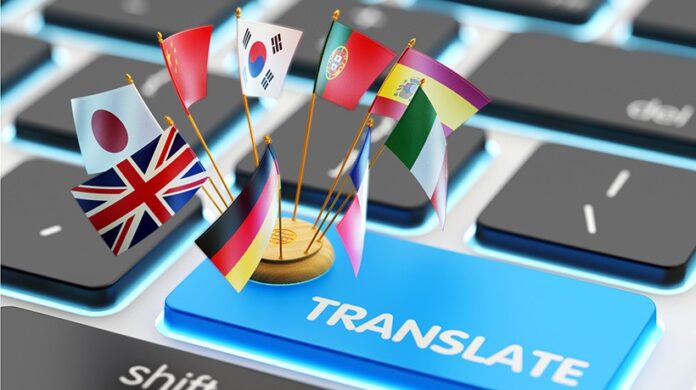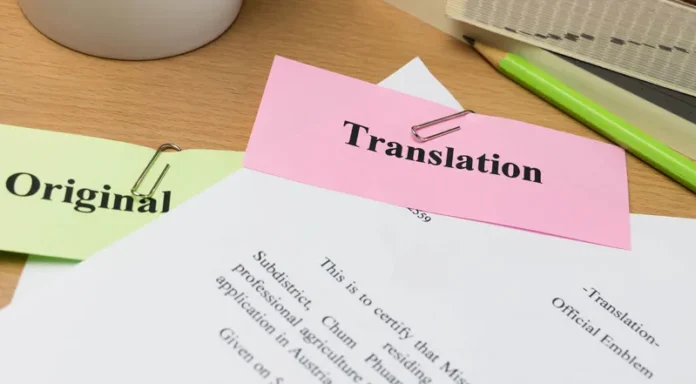The language barrier is a real problem and it has been for the better part of human history. In ancient times people had troubles understanding each other which resulted in hostilities where they were unnecessary. With hundreds of languages and thousands of dialects in the world, it is very problematic to ensure that the information flow is smooth and efficient. Even if there are language specialists present it does not mean that all the messages will get conveyed accordingly.
This is where translation comes in. In the modern world, translation services as well as individual translators perform this task and bring people and their businesses together. Back in the day it took years, decades even for somebody to first meet a new people and then spend time enough time with them learning their tradition and language. Nowadays it is much easier and straightforward, but translation is still lacking at times.
Modern Document Translation

If you are in need of an official translation of a certain document, it can be a nightmare to find the right person for the job. You can never really be sure how good the end result will be, nor if they are experienced and skillful enough to do it well. The price is also an issue because there is not one and the same pricing model. Is it per page, or per word? Do they value all content equally or should there be differences in pricing?
Overpaying for translation does not always happen, but it is common enough to be a problem. To prevent it from happening to you, you need to know about the telltale signs that point to it. In the article here we are talking about the most important signs that mean you are overpaying for your document translation. Get ahead of the problem and be ready next time you require a professional’s help with your language barrier.
1. No Free Repetitions
The modern translation industry works in a certain way that is not exactly a set rule of any kind, but more of a common understanding. This revolves around the repetition of text in certain documents. For example, contracts and other legal documents often have chapters and sections that are exactly the same. A few key words are different with everything else being the same. If the translator calculates this as any other text and does not have a repetition discount of some sort, you are probably overpaying for the whole document. Paying twice or more for the same text makes no sense, but this is how many translators earn their money. It is not illegal nor a malpractice, but it is infamous. To make sure you are not overpaying like this, talk with the translator about their repetition approach. If you can have 100% repetitions free, you will save up considerably.
2. Using Last Minute Translations

Having an urgent translation needed comes with a whole range of problems. There are actually two main ones that generally result in overpaying. First of all, translation is not something that can be rushed or done faster than it should. The translator will do a sloppy job and not pay enough attention to the semantics, pragmatics, and the general transfer of information. Without enough time, it cannot be done properly. Another issue is the general practice of translators to charge more for last minute work.
This makes sense because they have to prioritize it over their other projects. They have to leave everything else behind in order to complete this one job that is in a hurry. Prices instantly goes up while the quality will probably go down. Even if you complain afterwards, they can say that the deadline was unrealistic anyway and that it was not possible to properly finish it on time. It would be best to avoid last minute translations because a delicate job like this takes care, proofreading, and changes along the way.
3. Choosing Wrong Companies

Unless you think of translation of an important document you need for your career as an investment, you will probably have a bad experience. Translation is and should be expensive, but not too expensive. It is a highly delicate skill and not everyone can do it. Translation agencies and freelance workers are plenty in the modern world, particularly for the most common languages like English, Spanish, and French. You can find somebody to translate anything on the internet in mere seconds.
But this is not how things should be done and you risk overpaying for bad work. You require knowledge about the market and about translators you are choosing. Even with an automated service, you need to do research about it, since it may not be the right fit. Doing your homework and devoting time to finding the best place for your document is the ley. Only then can you be certain in the final quality of the translated document. To check out one of the best online services that supports over 100 languages, make sure to visit doctranslator.
4. No Translation Tech

Last but not least, the person doing your translation for you simply has to use the right technology to do it. If they are not, they will have no real idea how much it should really cost. The practice has come a long way from using dictionaries and simply knowing the language. There is now proper translation software that makes it a breeze, but only if you know how to use it. Top tier services and individuals make use of these amazing programs and apps on a daily basis and their work is much better than those that have been translated by traditional means.
The more text you feed into the software and the more you translate with it, the smarter it gets. Its memory grows and soon it starts to recognize patterns and translate text for you. Often time, more than half of the document is translated automatically with the translator only being there to do the things machines cannot. Best of all, this automation and standardization means that the prices are also set and they will tell you exactly what you are paying for. They will not overcharge you and you will not risk overpaying.





![Calgary’s Hottest Neighborhoods for Luxury Homebuyers [2024]](https://thewashingtonote.com/wp-content/uploads/2024/04/Calgary-324x160.png)



